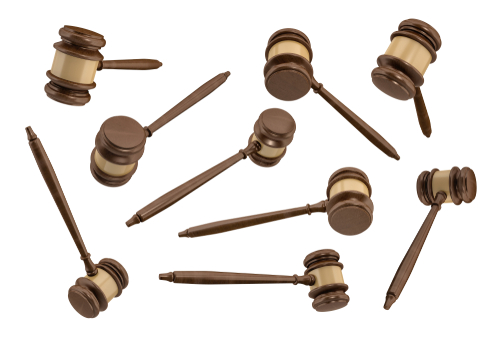
How federal appeals judges’ opinions change as they get older
September 26, 2023, 9:41 am CDT
- !function(d,s,id){var js,fjs=d.getElementsByTagName(s)[0],p=/^http:/.test(d.location)?'http':'https';if(!d.getElementById(id)){js=d.createElement(s);js.id=id;js.src=p+'://platform.twitter.com/widgets.js';fjs.parentNode.insertBefore(js,fjs);}}(document, 'script', 'twitter-wjs'); Tweet
- lang: en_US
-


“On balance, our findings suggest older judges write opinions that are systematically—albeit modestly—more similar to briefs submitted in those cases than younger judges,” according to a study presented at a political science conference earlier this month. Image from Shutterstock.
Older federal appeals judges are more likely to rely on “cognitive shortcuts” in their opinions than their younger counterparts, according to a study presented at a political science conference earlier this month.
The study found that older judges wrote opinions with “greater general linguistic overlap” to parties’ briefs and more “outright verbatim borrowing of brief content,” albeit to a lesser degree.
Reuters has coverage of the findings.
The study, posted to SSRN on Sept. 19, is Cognitive Aging and Opinion Writing Among Federal Circuit Court Judges.
The researchers used language software to compare the signed opinions and orders of 42 federal appeals judges to parties’ briefs. The judges were appointed after 1975; the youngest opinion author was age 40, and the oldest was age 88.
The study excluded judges from the U.S. Court of Appeals for the Federal Circuit.
“On balance, our findings suggest older judges write opinions that are systematically—albeit modestly—more similar to briefs submitted in those cases than younger judges,” the study says.
The authors suggested that the differences could be for reasons other than aging brains. Maybe judges appointed during earlier time periods were always more likely to borrow language from briefs. Maybe experienced lawyers are better able to write briefs that will appeal to longtime judges. Or maybe older judges are better able “to recognize quality briefs and sound arguments.”
The study authors are Ryan C. Black, a professor at Michigan State University; Ryan J. Owens, a professor at the University of Wisconsin; and Patrick C. Wohlfarth, a professor at the University of Maryland.
(adsbygoogle = window.adsbygoogle || []).push({});
Related topics: Federal Circuit Court | Judiciary | Health Law | Lawyer Wellness | Career & Practice | Legal Writing | Mental Health You might also like:- Yale and student group settle dispute over mental health needs
- Family First: A group of Washington lawyers works to keep infants with their mothers
- Summer reading and back-to-law-school tips
- General counsel respond to BigLaw attorneys' concern over extreme client demands
- 9th Circuit dissenters take aim at state-created danger doctrine
Introducing Jobbguru: Your Gateway to Career Success
The ultimate job platform is designed to connect job seekers with their dream career opportunities. Whether you're a recent graduate, a seasoned professional, or someone seeking a career change, Jobbguru provides you with the tools and resources to navigate the job market with ease.
Take the next step in your career with Jobbguru:
Don't let the perfect job opportunity pass you by. Join Jobbguru today and unlock a world of career possibilities. Start your journey towards professional success and discover your dream job with Jobbguru.
Originally posted on: https://www.abajournal.com/news/article/how-federal-appeals-judges-opinions-change-as-they-get-older/?utm_source=feeds&utm_medium=rss&utm_campaign=site_rss_feeds